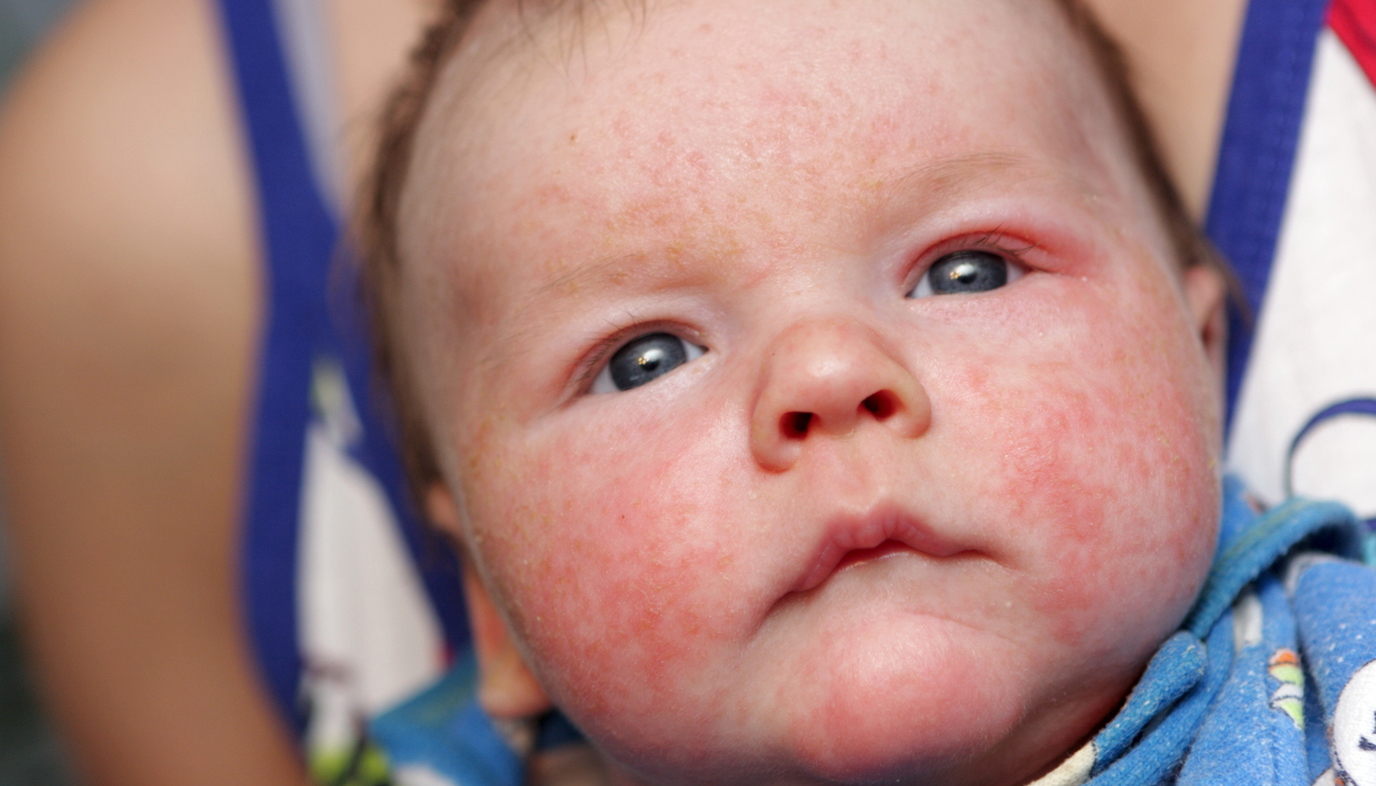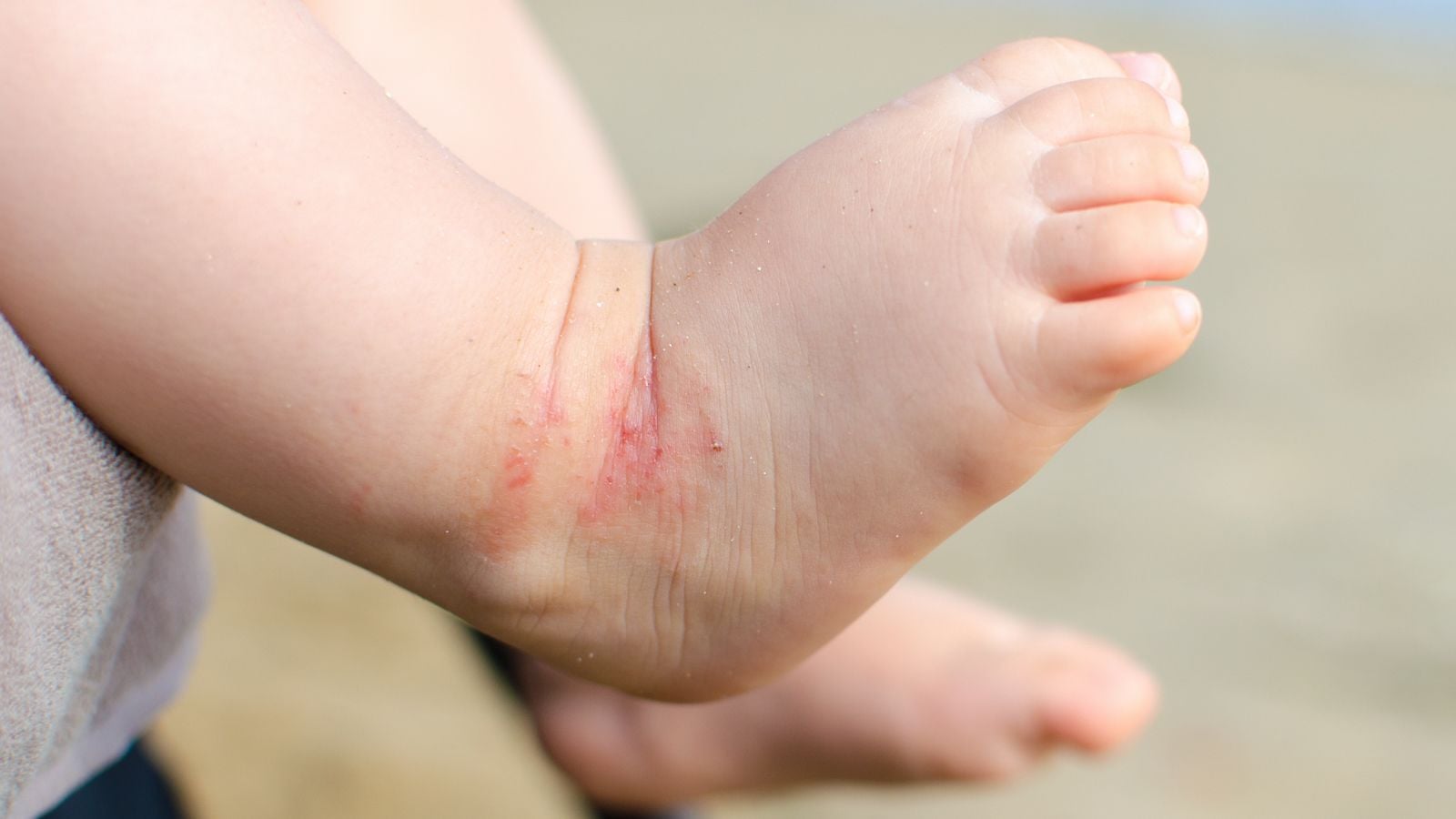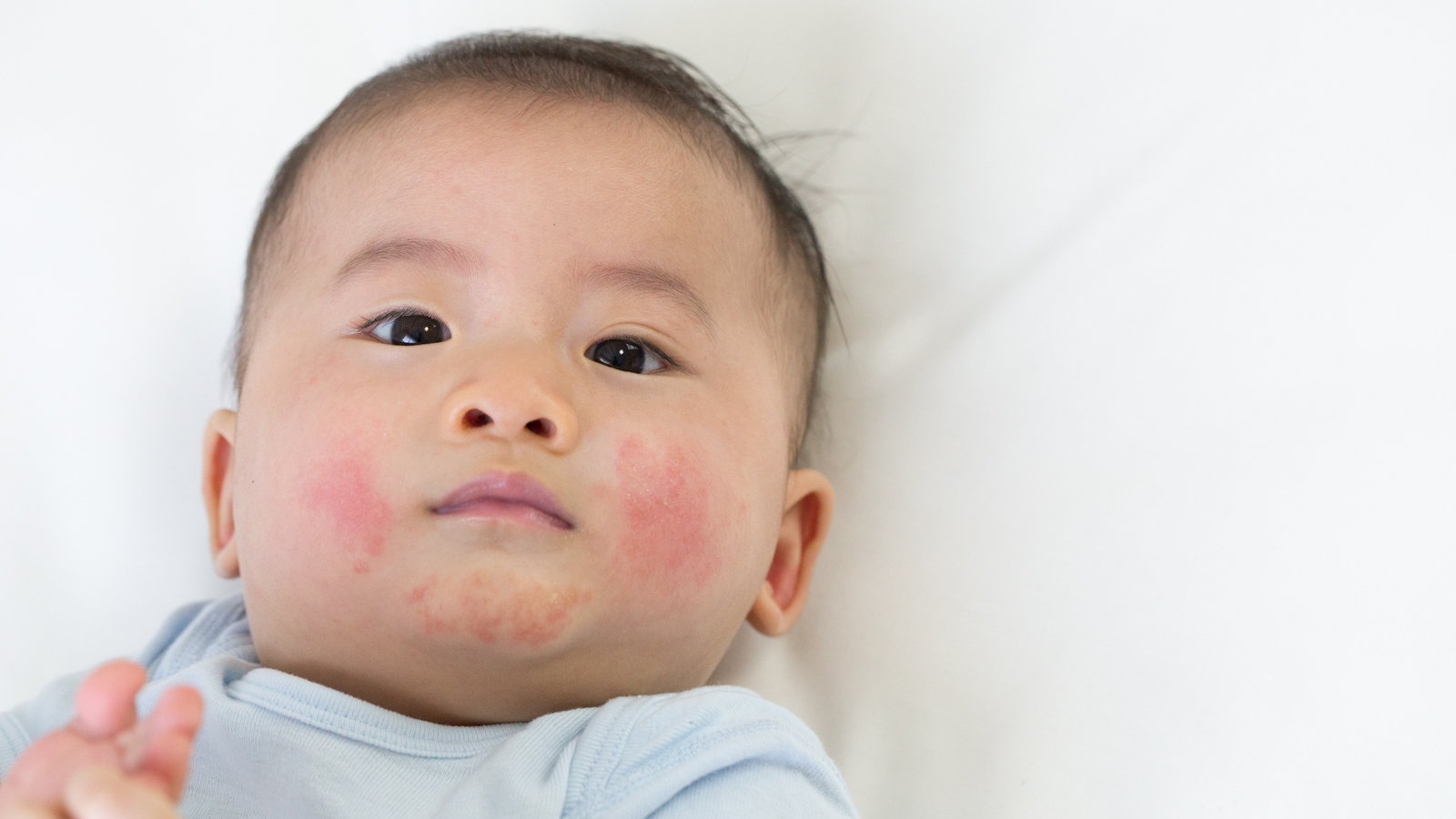
A bad case of eczema is hard on everyone in the house. Your little one’s dry, itchy patches of skin can make his or her life miserable, and you’re frustrated with “cures” that never seem to help. What is the best way to manage eczema, and how can you give your child relief?
First, it helps to understand what eczema is. Eczema is a skin rash also known as atopic dermatitis. It can show up as dry, scaly patches or as red bumps that blister and ooze. Many infants have a form of eczema known as “cradle cap,” which shows up on the scalp. Most cradle cap does not appear to bother the baby and goes away on its own. However, some older children suffer from a different form of eczema that is itchy and irritating. It can also result in infection, if the skin is broken open while your child is itching. Eczema may be hereditary, particularly if your family members are susceptible to allergies and asthma. The condition may also be exacerbated if your child eats or comes in contact with something they are allergic to.
If you believe that your child is suffering from eczema, you should check in with your doctor or dermatologist to make sure that it is eczema and not some other condition (and to check for any underlying allergies).

Easing Eczema Discomfort
- Switch to mild, perfume-free and dye-free soaps, shampoos, and detergents.
- Dress your child in soft fabrics that breathe easily, like cotton, and use soft sheets in the crib and/or bed.
- Bathe your child in lukewarm – not hot – water and don’t let them sit in the water too long.
- Use a perfume-free moisturizing lotion designed for sensitive skin after baths.
- Use a humidifier in the bedroom at night.
- Keep your child’s nails trimmed (if scratching is a problem) and consider soft cotton gloves if your child will wear them at night to prevent scratching.
- Wash any new clothing before your child wears them (to get rid of any chemicals that may have been used in the manufacturing process).
- Ask your doctor for a soothing ointment. Your doctor may recommend a mild topical steroid that is available over the counter, or she may give you a stronger version by prescription. Other prescription remedies include antihistamines or antibiotics (if there is an underlying infection).
- Work with your doctor to assess if a food allergy is the cause of your child’s eczema. This usually means making a systematic effort to eliminate common allergens from your child’s diet, such as cow’s milk and eggs.
For chronic cases, there’s also a new and surprisingly simple remedy: One recent study found marked improvements in children suffering from eczema who had been given baths in a diluted bleach solution. Researchers found that by adding a half-cup of bleach to a full bath, childrens’ eczema symptoms were reduced dramatically.
Once you have gotten your child’s eczema under control, you should steer clear of the factors that can cause it to flare back up again.

Factors Exacerbating Eczema
- Very hot baths
- Bubble bath and any perfumed shampoos or lotions
- Pajamas and clothes that are too warm and may cause excessive sweating
- Temperature extremes (i.e. going from the freezing cold to a warm place)
- Rubbing your child’s skin dry after a bath (pat gently with a towel instead)
As a general rule, it helps to remember that an eczema sufferer’s skin is tender and sensitive, and it should be treated as gently as possible. With extra care, your child’s symptoms should be more manageable within a few days or weeks. Young children who suffer from eczema usually outgrow it by the time they reach their teen years, much to their (and their parents’) relief.
